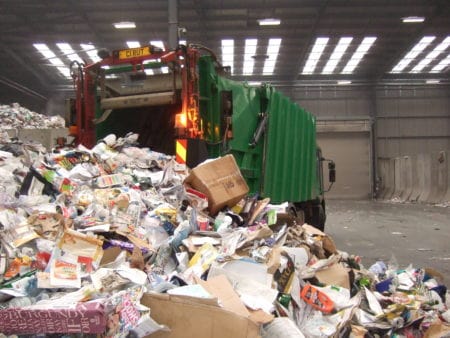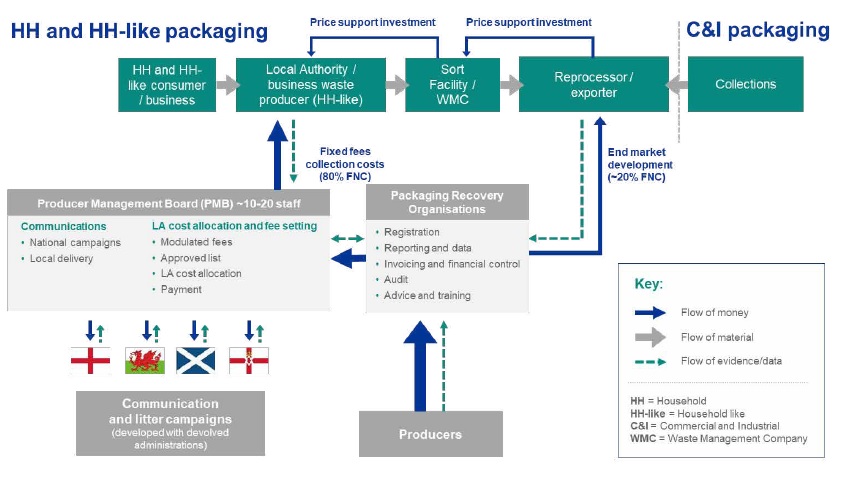Producer compliance scheme Valpak has today (26 April) outlined proposals for a ‘hybrid’ EPR system as a variation on reforms proposed in the Resources and Waste Strategy consultation on packaging.
The Valpak proposal incorporates elements of the four extended producer responsibility (EPR) models outlined by the Department for Environment, Food and Rural Affairs in the consultation document – with additional proposals aimed at developing end markets for recyclable material.

A new EPR system – to fund the collection and recycling of packaging materials – is being drawn up by Defra
Defra’s plans for reform of the producer responsibility regime for packaging are currently out for consultation, with a core aim that packaging producers pay the full net cost of the recycling and disposal of their products.
This centres on four options for how the new regime would function, replacing the current PRN-based system, including:
Model 1: Enhanced ‘near-to-business as usual’ – compliance schemes
Model 2: Single not-for-profit producer scheme
Model 3: Separate scheme for household/household-like packaging and commercial/industrial packaging
Model 4: Deposit-based government managed scheme.
However, Valpak has claimed that none of the four options being discussed will successfully help to develop end markets for materials or facilitate longer term investment by compliance schemes.
Hybrid
The organisation has instead put forward its hybrid ‘PackFlow’ option, which largely incorporates elements of the current packaging compliance system, coupled with elements from each of the four government-developed models.
Valpak’s hybrid model involves the set-up of a single not-for-profit organisation, known as the ‘producer management board’ (PMB), which would set a modulated fee that covers the full net costs of packaging collection by local authorities.
The remaining, smaller portion of costs – expected to be around 20% – would be diverted towards reprocessors with the aim of developing end markets for material and increasing capacity to achieve higher targets.

How Valpak’s proposal would function
Commenting on the proposal, Valpak’s director of consulting, Andrew McCaffery, said: “None of the models offered in the consultation have focused strongly on ways to develop end markets. We have a unique chance to reform the system in a way that will redefine the costs around collection and recycling, and transform the landscape for packaging.
“We should ensure that whichever option is chosen represents a robust system designed to meet – and exceed – the UK’s requirements.”
Alternative proposals
Valpak’s alternative model comes as others in the sector also seek to put forward their own proposals as alternative to those set out in the government consultation.
This includes the compliance scheme Ecosurety, which has put forward a ‘Centralised Competition’ proposal (see letsrecycle.com story), while the waste and resources firm Suez has also outlined its own hybrid model (see letsrecycle.com story).
Mr McCaffery, added: “The hybrid adaptation would help us to implement more sustainable systems that meet the requirements – and aspirations – of the Circular Economy, while allocating funds in a balanced way. The changes we face require careful consideration; ideally with further consultation once the options have been fine-tuned and narrowed down.
“With foresight and collaboration we can – and will – achieve a system that will be the envy of producer responsibility systems around the world.”
Related Links
PackFlow Hybrid Model
The post Valpak outlines ‘alternative’ EPR model appeared first on letsrecycle.com.
Source: letsrecycle.com Packaging


